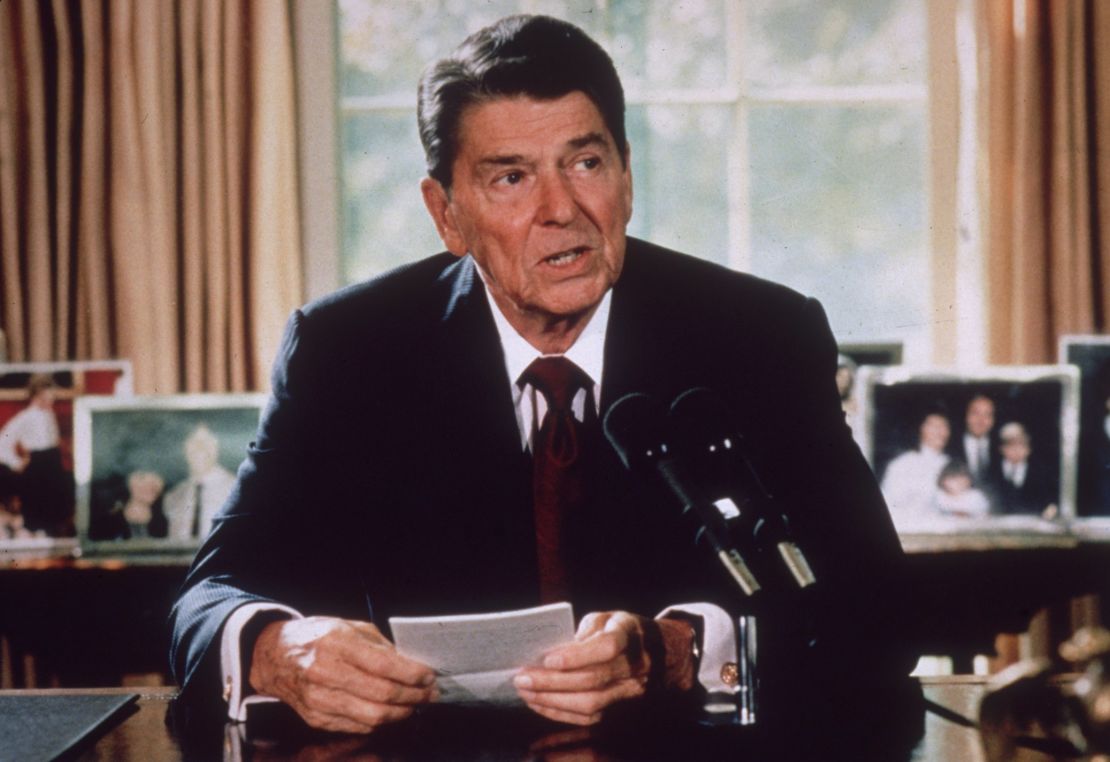Story highlights
Historian William Doyle first requested the recordings in 1996
The recordings involve former President Ronald Reagan talking with world leaders
Doyle's findings were published in the New York Post on Saturday
High-profile diplomatic incidents involving President Ronald Reagan and top world leaders were publicized for the first time Saturday after historian William Doyle got the White House to release the tapes.
From discussing troop withdrawals with Israeli Prime Minister Menachem Begin to discussing tense hostage negotiations with Pakistani President Muhammad Zia-ul-Haq, Reagan recorded dozens of calls he made from the White House Situation Room. The audio recordings were first published in the New York Post in a story Saturday.
The recordings became public after Doyle said he asked for them via a Freedom of Information Act request – in 1996.
One recording with Begin during the 1982 Lebanon War reveals that Reagan asked the Israeli Prime Minister to delay the withdrawal of Israeli troops from Lebanon until Lebanese government forces arrived.

“It’s a call that I have resisted making and did not want to make and I know what has been taking place there,” Reagan tells Begin in 1983. “And so, here I am now asking you the one thing you told me not to ask you and that is, could you delay a few more days in that withdrawal until the Lebanese army can free itself from Beirut?”
Begin faced heavy political pressure during the Lebanese conflict and would resign just months after his call with Reagan.
In a conversation with Pakistan’s Zia-ul-Haq, Reagan discusses the sensitive nature of hostage negotiations after a Trans World Airlines flight from Cairo was hijacked by radical Islamists.
One recording also reveals that Reagan made Syrian President Hafez el-Assad, the father of President Bashar el-Assad, wait for more than 13 minutes while he returned from horseback riding on his ranch in California.
The recordings Doyle shared with the Post also included a conversation with then-British Prime Minister and conservative ally Margaret Thatcher, when Reagan apparently apologized for sending Navy SEALs into Grenada without giving Thatcher a heads up, the Post reported.





